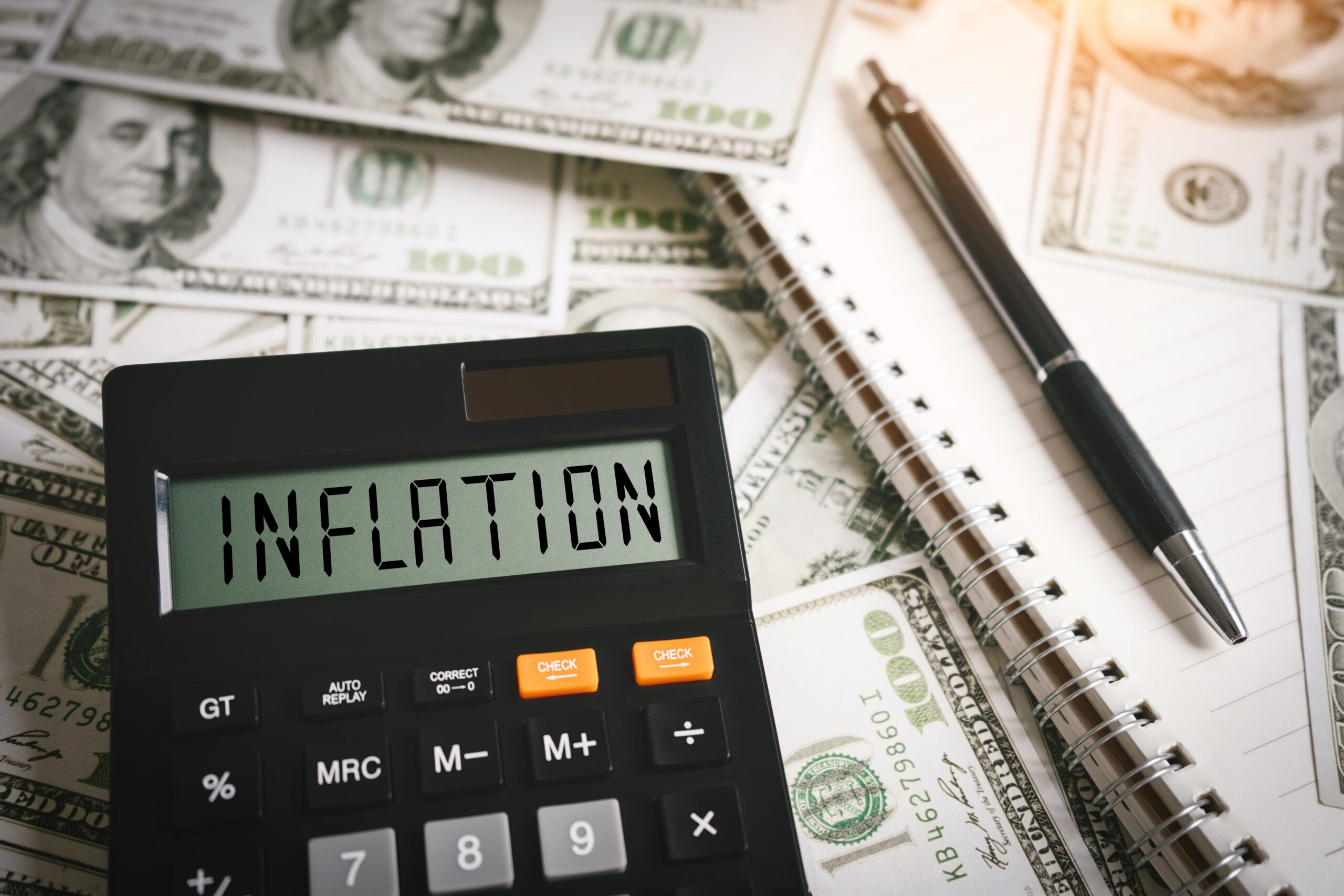You can’t escape inflation in today’s news. Rising prices are all around us. If you’re approaching or in retirement, that can be a big concern. What are your options to account for inflation when planning for retirement? What can you do now to help ensure you’ll be prepared?
Will Inflation Deflate your Retirement?
Ronald Reagan famously said, “Inflation is as violent as a mugger, as frightening as an armed robber and as deadly as a hit man.” It sounds dramatic, but if you live on a fixed income, inflation can be a much more significant threat than it seems.
In the short term, inflation makes budgeting much more challenging. But long-term the impact is even worse, as inflation dramatically erodes your purchasing power as it continues. And once in motion, inflation tends to stick around. That’s because producers and merchants are unlikely to cut their own prices when they see component costs still rising. i
You may have heard of the Rule of 72 formula.ii This simple principle can help you estimate how fast your money will double when investing. You simply divide 72 by your expected rate of return to estimate the number of years it will take.
Did you know that same formula works in reverse with inflation? You can use it to approximate how quickly increasing prices will cut your retirement savings in half. iii
What Does Inflation Do to Your Savings?
Using that formula, you can estimate that 8% inflation will cut your savings in half in about 9 years (72 divided by 8 equals 9). Of course, that will be offset by earnings, and you can mitigate inflation by choosing less expensive products and buying less. But this exercise underscores the importance of not leaving your money in cash under a mattress.
Instead, your investments need to at least match the rate of inflation to keep up. Interest rates may also rise. If you have credit card or other high or variable rate debt, this may also increase your costs.
Do Retirement Plans Adjust for Inflation?
Most retirement plans estimate inflation as a fixed 3%. A Market Watch article argues how dangerously low that common estimate is. The actual 100-year inflation average is higher, closer to 3.3%. But as previously noted, inflation tends to be sticky once it has gained a foothold. Over some 20-year periods during that same hundred years, inflation averaged 6%. During one exceptionally high inflation period in the U.S., inflation averaged 11.7%. iv
How Can I Protect my Retirement Savings from Inflation?
Fortunately, the right wealth management approach can help. You can use specific financial planning strategies to help take the uncertainty out of retirement in inflationary times.
- Stick with stocks
First, moving to cash as volatility increases can be tempting, but that’s not usually wise. Historically, staying invested in stocks has been one of the only ways to stay ahead of inflation.v So you do need to maintain a solid allocation to equities throughout retirement.
- Create a retirement income strategy that helps you feel secure
This is a critical step. Sticking with stocks during retirement can be stressful, doubly so during difficult economic times. We help clients put a strong income strategy in place so you know the bills will be paid no matter what. That makes it far easier to stay fully invested through changing market conditions.
At our firm, we use the 4 Buckets strategy to create a fixed source of income for our clients. Since most people today do not have the benefit of an employer pension, we use annuities and social security to help you create a pension-like steady income stream.
One small boost to this strategy: social security benefits are indexed to inflation. So you can expect to see cost of living adjustments periodically to help you keep pace. vi
- Increase your withdrawals to reflect the increase in inflation
We realize this may sound counterintuitive. If inflation is eating into the real value of my assets, shouldn’t I spend less? We say no. Most retirees we work with have saved enough for retirement. Avoiding cutbacks helps create a positive-feedback loop that enables you to stay invested in stocks. And frequently, we find it provides our clients the confidence to take advantage of bargains in the stock market when stocks drop.
Typically, cutting back would put these same individuals in a state of worry, watching every penny. That would likely prevent them from continuing to invest in stocks, which is one thing that can help you keep up with inflation. These behaviors, in turn, help your assets last even longer.
How Should I Invest during Inflation? (Hint: Focus on Taxes)
With your bills easily covered each month, you’ll feel more comfortable investing in stocks, or even real estate or other assets. Instead of feeling vulnerable, you’ll feel empowered to look for bargains on quality investments.
When markets drop, you may have other opportunities. One may be to convert more of your tax-deferred assets to Roth. Roth accounts require you to pay taxes up front, but then can grow and be withdrawn tax free once you reach retirement age. The more tax-free investments you have in retirement, the more flexibility you’ll have to adjust your taxable income each year. This can help you keep your tax rate down. That savings can help you offset the higher costs you experience due to inflation.
Should I Stop Investing in my 401(k) During Inflation?
While some people may wonder if they should stop investing in their 401(k) or other retirement accounts during inflation. The answer for most people is no. You need to keep pace with inflation so keep investing. Better yet, if you’re investing when the stock market is down, you’re getting sale prices.
Opportunities Still Exist, even During Inflationary Times
You might be seeing a theme here. By using these types of financial planning and tax planning strategies to prepare for inflation, you may find yourself in quite a different mindset. Instead of feeling financially vulnerable as you watch stock prices drop, you will have your bills paid with a guaranteed income stream. So instead of sitting back, afraid to buy stocks when they fall, you can be in the enviable position of bargain shopping.
Value investor Shelby Davis noted, “You make most of your money in a bear market; you just don’t realize it at the time.”
Conclusion: How can I Protect my Retirement from Inflation?
As you can see, inflation can impact your retirement planning in a profound way. That’s why financial planning, sooner rather than later, is critical. By working with a financial planner, you can create a retirement plan that helps generate the income you need to maintain your lifestyle. With an effective strategy in place, you can enjoy your retirement without worrying about how rising costs will impact your ability to make ends meet.
i https://www.newsweek.com/sticky-cpi-inflation-america-economy-recession-interest-rates-high-prices-1724594
ii https://www.investopedia.com/terms/r/ruleof72.asp
iii https://www.cnbc.com/2022/05/11/how-fast-does-inflation-cut-buying-power-heres-a-simple-guide.html
iv https://www.marketwatch.com/story/how-retirement-plans-vastly-underestimate-inflation-2015-02-03
v https://equitable.com/retirement/articles/inflation-and-long-term-investing
vi https://www.ssa.gov/policy/docs/ssb/v67n3/v67n3p73.html

